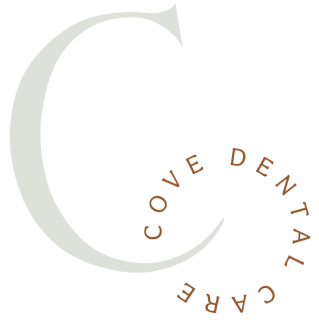2104 Old Spartanburg Rd Greer, SC 29650

Tooth Cavities in Greer, SC
Cavities, also referred to as dental caries, emerge as localized areas of tooth decay triggered by the deterioration of tooth enamel and associated structures. They predominantly stem from a blend of oral bacteria and a diet rich in sugars or starches. As bacteria metabolize sugars and starches in the mouth, they generate acid that erodes the protective enamel coating on teeth, leading to cavity formation.
The severity and size of cavities can vary, often manifesting initially without noticeable symptoms. However, if left unaddressed, cavities can advance, causing discomfort such as toothache, sensitivity, and potential tooth loss. Treatment typically involves the removal of the decayed portion of the tooth, followed by filling the void with materials like composite resin or amalgam. Proactive measures like regular dental examinations, meticulous oral hygiene practices, and a balanced dietary regimen serve as preventive strategies to mitigate the risk of cavity development.
What Causes Cavities?
Everyone harbors bacteria in their mouth, with some strains being more detrimental than others. Maintaining oral hygiene is crucial for minimizing harmful bacteria and preserving a healthy smile. A cleaner mouth reduces the proliferation of harmful bacteria, thereby decreasing the likelihood of cavity formation.
Adopting a nutritious, well-balanced diet also aids in cavity prevention. Sugar serves as a primary energy source for bacteria. While the importance of limiting sugary sodas and sweets is well-known, it's essential to recognize that carbohydrates and starches also break down into sugars. Foods like pasta and bread undergo this breakdown process during digestion, providing additional nourishment for oral bacteria.
Additionally, the duration of exposure to bacterial food sources plays a significant role in tooth decay. Prolonged availability of these food sources increases the likelihood of cavity formation. Saliva helps maintain a neutral pH in the mouth, but when bacteria consume sugars, they produce acid, disrupting this balance and promoting tooth decay. Frequent snacking or consumption of sugary beverages provides continuous nourishment for bacteria, perpetuating the production of acid and exacerbating the risk of cavities.
Preventing Cavities:
It's important to replace a lost tooth promptly to avoid worsening side effects over time. At our dental office in Greer, SC, we offer a range of tooth replacement options to address your needs efficiently.
Preventing cavities is a priority for us, even if you've experienced one before. Our focus is on proactive dental care to minimize the necessity for invasive procedures. We'll discuss your diet, recommend oral hygiene products, and provide guidance on maintaining optimal oral health at home.
If you suspect a cavity, don't delay—visit our office at your earliest convenience. Ignoring decay allows it to progress, potentially leading to complications such as abscesses, painful pulp infections, or even tooth loss. Taking prompt action is vital for preserving your dental health.
Treating Cavities:
Traditionally, cavities have been treated with dental fillings, often composed of amalgam containing mercury. However, contemporary fillings predominantly utilize composite resin, which matches the color of your teeth for a more natural appearance. This material is both subtle and less conspicuous in your mouth, eliminating concerns regarding the potential toxicity of mercury.
Before commencing treatment, we administer a local anesthetic to ensure your comfort throughout the procedure. We meticulously remove any infected material and thoroughly cleanse the cavity in your tooth. The dental filling material bonds securely to the tooth, providing a durable solution. We ensure proper hardening and setting of the filling to enable you to use the treated tooth comfortably, without pain.
In cases of extensive decay, we may recommend inlays or onlays as intermediate solutions between fillings and dental crowns. Inlays fill the hollow of the tooth without affecting the cusps, while onlays also cover the cusps and are sometimes referred to as partial crowns. They address many issues that crowns can treat but involve less invasive procedures.
More About Cavities
Cavities, or dental caries, pose a prevalent dental concern with implications for both oral and systemic health. These areas of decay develop on tooth surfaces due to interactions among bacteria, sugars, and acids in the mouth. While cavities are primarily associated with dental health, they can also be linked to various systemic health issues.
The development of cavities is closely tied to inadequate oral hygiene practices and excessive consumption of sugary substances. Bacteria in the mouth produce acids as they metabolize sugars, gradually wearing away the protective enamel of the teeth. Left untreated, cavities can penetrate deeper into the tooth, potentially reaching the pulp and causing significant pain and infection.
The relationship between cavities and overall health stems from the potential for bacterial dissemination from the mouth to other bodily regions. Research indicates that bacteria associated with cavities can enter the bloodstream through inflamed or infected gums, a condition known as periodontitis. This bacteremia has been associated with an elevated risk of certain systemic conditions, including cardiovascular diseases like heart disease and strokes.
Moreover, the discomfort and distress caused by cavities can adversely affect an individual's quality of life. Challenges in eating, speaking, disrupted sleep, and persistent pain can contribute to stress and diminished overall well-being. Additionally, poor oral health has been implicated in diabetes, as gum disease-related inflammation may exacerbate insulin resistance.
Preventive measures such as proper oral hygiene, routine dental examinations, and a balanced diet not only safeguard dental health but also potentially mitigate the risk of associated systemic ailments. The link between cavities and systemic health concerns underscores the significance of comprehensive dental care in promoting both oral health and overall wellness.

